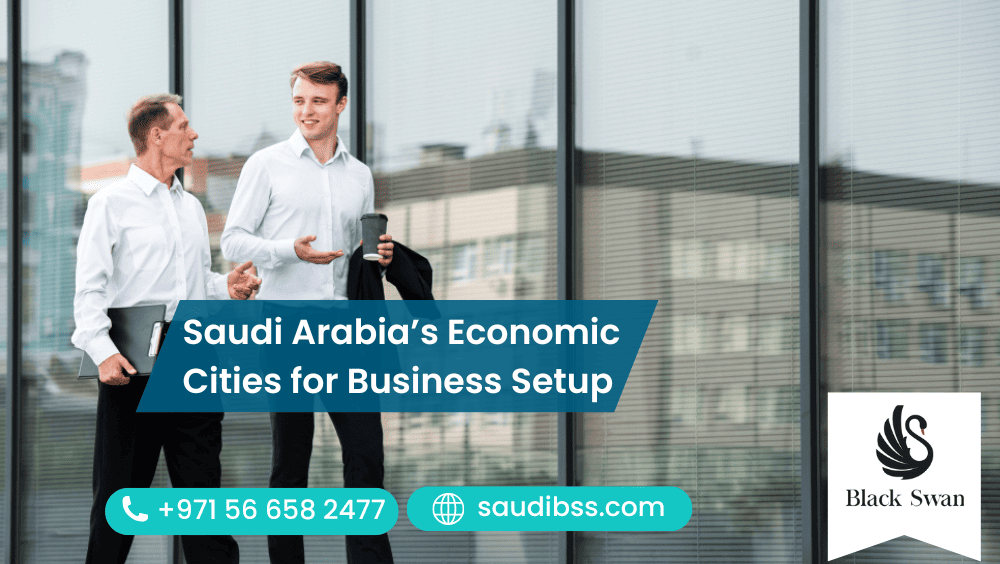Starting a company in Saudi Arabia can be like arriving in a foreign city under cover of darkness — everything is exhilarating, but the road signs don’t quite make sense. The good news is: once you have a grasp of the legal “map,” it’s clear sailing. Recent changes to a number of commercial rules in Saudi Arabia include the promulgation, on 19 January 2003, of a new companies law.
In this guide, we’re going to go over the legal framework in plain English — what you need to worry about, what you need to have prepared, and how to stay compliant without pulling out your hair. (As ever, this is generic information and not legal advice.)
1) Start with the right legal structure (it changes everything)
Your first legal decision is your company “shape.” It affects ownership rules, governance, reporting, and even how easily you can raise money later.
Common options include:
- Limited Liability Company (LLC):Common with small and mid-sized enterprises (SMEs) as well as service businesses, offers flexible ownership and management.
- Joint Stock Company (JSC): Typically for medium and bigger size companies with an intention to go to capital markets at some point.
- Simplified Joint Stock Company (SJSC): A new type of company introduced under the revised order that’s easier to form and more flexible—popular with startups and high-growth businesses.
- Branch of a foreign company: Works when the parent company wants direct presence without a separate Saudi entity (requirements differ by activity).
- Professional entities: Used for regulated professional services (varies by sector).
The Companies Law is the backbone that governs these structures and corporate behaviour in the Kingdom. Get details on Business Setup in Saudi Arabia.
Tip: Don’t pick your structure based only on what your friend used. Instead, match it to your activity, ownership plan, hiring model, and growth goals.
2) Know the key authorities (who regulates what)
Saudi business setup isn’t handled by just one office. It’s more like a relay race—different agencies handle different parts.
Here’s a simple reference table:
Authority / Platform
Why it matters in Saudi business setup
Ministry of Commerce (MoC)
Company incorporation services + Commercial Registration (CR) + corporate updates
Saudi Business Center (SBC)
The digital hub used for many incorporation and business services
MISA (Ministry of Investment)
Foreign investor registration/licensing pathway and guidance
ZATCA
VAT, zakat/tax processes, and e-invoicing (Fatoora)
HRSD
Labour compliance and Saudization (Nitaqat)
GOSI
Social insurance registration for employees (often part of post-setup compliance)
Saudi Post (SPL)
National Address registration required for government transactions
When you understand which body owns which step, you avoid the classic mistake: preparing the wrong documents for the wrong portal.
3) Licensing: your activity decides your legal route
In Saudi Arabia, your business activity classification matters a lot. Some activities are simple to register. Others require extra approvals from sector regulators (for example finance, insurance, education, health, food, logistics, and more).
A Ministry of Commerce service page even notes that certain activities may require approvals from relevant regulators (for example, a license from the Saudi Central Bank where applicable). Looking for a Business Setup Consultants in KSA?
Practical approach:
- Define your activities clearly (not “general trading” if you’re doing specialised services).
- Check if the activity is regulated.
- Build your incorporation documents around what the regulator expects (not just what’s easiest to register).
4) Incorporation essentials: what the law expects you to formalise
No matter your structure, the legal foundation usually includes:
- Articles of Association (AoA) (or similar constitutional documents)
- Shareholding/partner details and management structure
- Registered address (linked to National Address)
- CR issuance through the relevant platform
- Post-incorporation registrations (tax, labour, etc.)
Saudi’s incorporation services are increasingly digital. For example, the MoC outlines step-based incorporation through the SBC platform for an LLC.
Small but important note: Many founders rush documents. Later, they discover the AoA doesn’t match how the business actually runs—then every bank change, investor discussion, or ownership transfer becomes harder than it needs to be.
5) Tax and invoicing compliance: don’t treat it like an “afterthought”
Once you’re operational, your legal compliance quickly shifts toward tax and invoicing.
VAT
ZATCA states the mandatory VAT registration threshold is 375,000 SAR (taxable supplies).
Even if you’re not there yet, you should plan your invoicing flow from day one—because fixing invoices later is painful.
E-invoicing (Fatoora)
Saudi Arabia’s e-invoicing program has phases. ZATCA notes Phase 2 (Integration) is enforceable starting January 1, 2023, in waves.
So, depending on your turnover and category, you may need system integration readiness—not just basic invoice formatting.
Best practice: Choose accounting and invoicing tools that can scale into ZATCA requirements instead of patching things together later. Obtaining an Business License in KSA.
6) Labour law + Saudization: compliance begins with your hiring plan
Saudi employment compliance isn’t only about contracts. It also includes workforce planning and localisation expectations.
The Ministry of Human Resources and Social Development provides guidance on amendments and procedures under the Nitaqat Program—Saudi Arabia’s framework tied to Saudization and labour market regulation.
What this means for you in real life:
- Your hiring model should anticipate Saudi national employment targets (varies by sector and company profile).
- Your payroll and HR documentation must stay clean.
- Your internal job titles and job descriptions should align with reality (yes, this matters more than people think).
7) Ownership transparency: UBO is not optional anymore
Saudi Arabia has been strengthening corporate transparency. The Ministry of Commerce announced rules related to identifying and disclosing the Ultimate Beneficial Owner (UBO) and aligning disclosure with incorporation or annual CR confirmation processes.
In simple terms: the government wants clarity on who truly owns or controls the company—especially when structures get layered.
Practical tip: Keep an internal ownership chart updated (even if your shareholders are “simple” today). It saves time when banks, auditors, or regulators ask for it. Get details on Business Registration in KSA.
8) Data protection: if you collect customer data, you have legal duties
If your business touches personal data—customers, employees, website leads, app users—you need to take the Personal Data Protection Law (PDPL) seriously. Saudi’s PDPL framework (published under SDAIA materials) lays out obligations for controllers, processing rules, and individual rights.
What to do early (and calmly):
- Publish a privacy notice that matches what you actually collect.
- Limit access to personal data internally.
- Set retention and deletion rules (don’t store everything forever).
- Review cross-border transfer needs if your systems are hosted outside the Kingdom.
9) Protect your brand: trademark first, marketing second
A surprising number of founders build websites, packaging, and social campaigns before securing a trademark. In a competitive market, that’s risky.
Saudi trademark filing can be done through the Saudi Authority for Intellectual Property (SAIP) via its Trademark Registration service.
If your name matters to your revenue, treat trademark like a foundational step—not a “nice-to-have.” Get details on Business Establishment in KSA.
10) Disputes happen—set your contract strategy early
The strongest businesses don’t avoid contracts—they design them well. Saudi courts exist, but many commercial parties also consider arbitration or ADR for speed and predictability.
Saudi has an institutional ADR body, the Saudi Center for Commercial Arbitration (SCCA), which provides arbitration/mediation services.
Simple contract habits that reduce drama later:
- Clear scope and deliverables
- Payment terms with milestones
- Liability limits (reasonable, not extreme)
- Termination clauses that actually work
- Dispute mechanism (court vs arbitration) chosen intentionally
Related Articles:
» Legal Requirements for Company Establishment in Saudi Arabia
» Legal and Regulatory Insights: Setting Up a Business in Saudi Arabia
» Startup Business Setup in Saudi Arabia
» Can a Foreigner Start a Business in Saudi Arabia?
» Choosing the Right Business Structure in KSA: Sole Proprietorship, LLC, or Joint Stock Company
11) A practical compliance checklist (save this)
Before launch:
- Confirm your legal structure (LLC / JSC / SJSC / branch)
- Validate activities and regulator approvals (if any)
- Draft and review Articles of Association
- Arrange office/lease pathway + National Address
- Prepare ownership documentation for UBO clarity
After incorporation:
- Obtain Commercial Registration (CR)
- Register with ZATCA (and plan VAT readiness)
- Confirm e-invoicing (Fatoora) obligations by business profile
- Open labour files and align hiring with Nitaqat
- Set data protection basics (PDPL) if handling personal data
- File trademark with SAIP if brand value matters

Ensuring Compliance for a Successful Business Setup
Saudi Arabia’s legal framework is detailed, but it’s not designed to block you—it’s designed to standardise business operations at scale. When you treat compliance as if it were a system (as opposed to random paperwork), you go faster, avoid fines, and earn trust from banks, partners and clients.
If you need assistance when your business’s structure and permissions do not directly fit on the right type of activity, Saudi Business Setup supports more predictable establishment process.
FAQs on “Navigating Saudi Arabia’s Legal Framework for Business Setup”
The basic structure is provided by the Companies Law applying to structures, governance, and incorporation requirements.
It entered into force on January 19, 2023, along with its implementing regulations.
Often yes—foreign investors typically use the MISA pathway depending on the activity and investor profile.
A CR is your official commercial record issued through Ministry of Commerce/SBC services and is essential for operating legally.
Yes, SPL National Address is treated as a mandatory requirement for government and commercial transactions.
ZATCA notes mandatory registration applies when taxable supplies exceed 375,000 SAR.
ZATCA’s e-invoicing program includes Phase 2 integration, enforceable from January 1, 2023 in waves for targeted taxpayers.
It’s a workforce localisation framework linked to HR compliance and employment of Saudi nationals, guided by HRSD rules and procedures.
Ultimate Beneficial Owner (UBO) rules focus on identifying who ultimately owns/controls the entity, and disclosure aligns with incorporation/annual confirmations.
If you process personal data, PDPL obligations can apply—so you should set privacy controls early.
You can file for trademark registration through SAIP using its official trademark services.
Align your structure + activities first, prepare clean incorporation documents, maintain ownership transparency (UBO), and plan tax/labour compliance from day one—not after you start selling.













